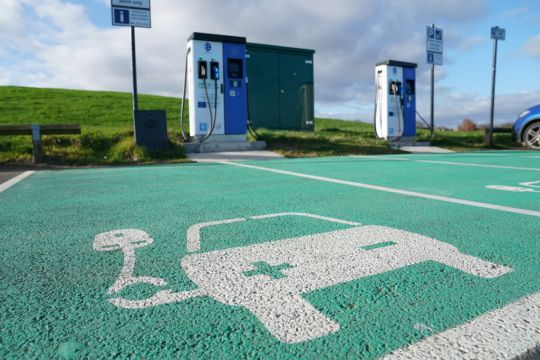The European Union on Wednesday proposed an effective ban on the sale of new petrol and diesel cars as of 2035 which, as part of a broad climate package, will accelerate a switch to zero-emission electric vehicles (EVs).
The European Commission proposed a 55 per cent cut in CO2 emissions from cars by 2030 versus 2021 levels — much higher than the existing target of a 37.5 per cent reduction in CO2 emissions by that time.
The Commission also proposed a 100 per cent cut in CO2 emissions from cars by 2035, which would make it impossible to sell new fossil-fuel-powered vehicles in the 27-country bloc.
"This is the sort of ambition we've been waiting to see from the EU, where it's been lacking in recent years," said Helen Clarkson, chief executive of the Climate Group, a non-profit group that works with business and government to tackle climate change.
"The science tells us we need to halve emissions by 2030, so for road transport it's simple – get rid of the internal combustion engine."
Charging points
In order to boost EV sales, Brussels also proposed legislation that would require countries to install public charging points along major roads with a maximum distance of 60 kilometres (37.3 miles) between them by 2025.
The rollout of EVs is expected to create 3.5 million public charging stations for cars and vans by 2030, with that number to grow to 16.3 million by 2050.
Even when buyers have been able to afford the price premium for a part- or all-electric vehicle, many have been deterred by "range anxiety" because of a lack of public charging stations.
Low-emission car sales surged in Europe last year, even as the Covid-19 pandemic knocked overall vehicle sales, and one in every nine new cars sold was an electric or plug-in hybrid. Full electrification is still a long way off, however.
Many carmakers have announced investments in electrification, partly in anticipation of tougher emissions targets from the EU.
Last month, Volkswagen AG said it would stop selling cars with combustion engines in Europe by 2035, but later in China and the United States, as part of its shift to electric vehicles.
Some European carmakers such as BMW and Renault have invested heavily in plug-in hybrids to help consumers wary of going fully electric become comfortable with the technology.
Renewable energy
Also on Wednesday as part of the package of climate policies, the Commission proposed an overhaul of EU renewable energy rules, which decide how quickly the bloc must increase the use of sources such as wind, solar and biomass energy produced from burning wood pellets or chips.
To help meet a legally-binding target to eliminate net EU emissions by 2050, the Commission has set a more ambitious interim target for the EU to raise the share of renewable energy to 40 per cent of final consumption by 2030.
This would see an increase from roughly 20 per cent in 2019, and replaces a previous target for a 32 per cent renewables share by 2030 — which Commission estimates suggest the bloc was on track to meet.
The Commission proposed also tightening rules that determine whether wood-burning energy can be classed as renewable and count towards green goals.
It requires biomass-fuelled power and heat plants with a capacity of 5 megawatts (MW) or above to meet sustainability criteria, and provide substantial emissions cuts compared with burning fossil fuels. Biomass plants with a capacity below 20 MW are currently exempt from those requirements.
Doubling energy cuts
The package of policies, called "Fit for 55", also includes fuel tax changes and reforms to the EU carbon market to be negotiated and approved by EU countries and the European Parliament — a process which could take around two years.
It also targets energy savings, setting a goal for EU countries to collectively cut energy consumption by 9 per cent by 2030, compared with their projected energy use by that date under current plans.
To hit that goal, countries will be required to put in place measures to cut their final energy consumption by 1.5 per cent each year from 2024 to 2030, nearly doubling an existing requirement of 0.8 per cent.
That could be done by insulating buildings or installing more energy-efficient heating and cooling systems.
Europe renovates just one per cent of buildings to save energy each year. Brussels hopes countries will use the EU's €800 billion Covid-19 economic recovery fund to launch a wave of green renovations, boosting construction sector jobs.
The Commission also proposed countries renovate three per cent of buildings owned or occupied by public bodies each year to transform them into "nearly zero-energy buildings".
That would include hospitals, government buildings, schools and social housing, and amount to more than 700,000 buildings being renovated per year, based on industry estimates.







